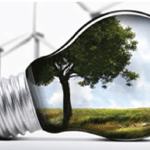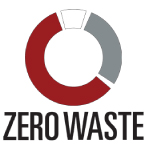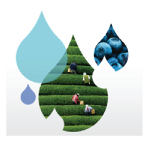Project Overview
The Engineers for a Sustainable World (ESW) Engineering Service Learning team has partnered with Kiva, one of the leading global microfinance lenders. As part of Kiva’s Kiva Zip program, the ESW team is working to provide trustee groups with tools to certify green loans around the world as part of the KivaGreen project. By working with local small business to test accurate energy, water, and waste audits we are identifying businesses that are working to improve their business by practicing environmentally friendly techniques. Businesses who participate in the audits receive constructive feedback specifying areas they can become green and endorsements in from local trustee groups the their KivaZip loan is certified with a “green badge”. It is projected that over first 6 years of implementation, the KivaGreen project will certify 3,000 businesses world-wide, and remove over 61,000 metric tons of carbon dioxide, which is equal to removing over 15,000 cars off the road.
Current Status
As of the Spring 2015 semester, the KivaGreen project is currently on track and continues to have an approximate project completion in Fall 2016. The first iteration of environmental audits that will be delivered to Kiva Zip is the Energy Audit Design Procedure (EADP), which is scheduled to be delivered on December 11th, 2015. The second iteration, Waste Audit Design Procedure (WADP), is scheduled to be completed and field tested in Spring 2016. WADP currently has an estimated delivery sometime in Spring 2016. Finally, the third iteration, Water Audit Design Procedure (Water ADP), is scheduled to be completed and field tested in Fall 2016 with an estimated delivery sometime in Fall 2016. Once all three audit procedures have been delivered, the environmental audit procedure package will be complete, which thus ends the KivaGreen project.
Energy Audits Areas
Energy
|
Extraction refers to the processing and transportation of fossil fuels damages ecosystems, which depletes non-renewable resources and releases greenhouse gasses (GHGs). An energy efficient business can save money and maintain steady operating costs while energy costs are decreased. Energy-efficient businesses are also better prepared for GHG regulations while reducing emissions can reduce compliance issues. Businesses should conduct energy audits, control temperatures, and use energy-efficient products to cut down carbon dioxide emissions |
Waste Management
|
Waste management is a critical factor of sustainability for Earth’s natural nutrient cycles and climate change. Improperly managed waste can lead to litter and toxins that contaminate the environment--which negatively affects water, soil, wildlife and human health. Being aware of our natural resources, disposal and the stages of life cycle helps mediate environmental impacts, including climate change. In addition to adhering to federal and state regulations when managing wastes, businesses ought to be aware of the management costs associated with storing and transporting hazardous wastes and potential financial penalties. By conducting waste audits, reducing waste at its source, reusing, recycling, and understanding electronic waste, we can have businesses becoming a zero waste business. |
Water Management
|
There are different ways we can manage, treat, and deliver water to the public. Proper management equipment prevents excess water usage. There is an overly increasing demand for water around the world. This demand uses technology that enables proper management of water, which includes promoting high-efficiency toilets and faucet aerators. Rooftop recovery systems to capture rainwater, which would minimize the usage of excess water, would be another water management tool that businesses can implement.
|




